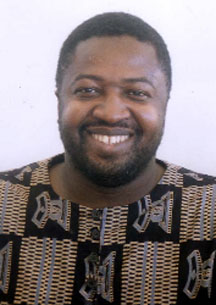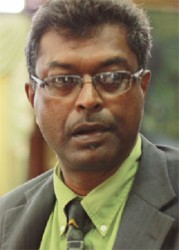The recent PPP Congress has acknowledged that ethnic insecurities are real and says that any political solutions must address these insecurities.
“We recognise that ethnic insecurities are real and that any political solution must address these insecurities and build trust and confidence among our people,” the Political Declaration of the PPP’s 30th Congress, which concluded two Sunday ago at Port Mourant, Corentyne, Berbice, said. Party delegates and observers pledged their determination to continue to unite the diverse ethnic groups in the country and to unequivocally reject those intent on dividing the people on the basis of ethnicity, according to the declaration.
Activist David Hinds yesterday applauded the PPP for acknowledging that ethnic insecurities are real but pointed out that they have to go “beyond mere talk of inclusion.” He said that in uniting the diverse groups, concrete measures dealing with insecurities have to be instituted. Ethnic insecurity, he said, “is grounded in the fear of domination” and this fear has to be addressed in a concrete way. This involves meaningfully including the representatives of the ethnic groups in the formal exercise of power. “…Inclusionary democracy must mean the actual involvement of the representatives of all of the ethnic groups in the actual decision-making process in a formal and legal way,” Hinds said.

According to the activist, it is the first time since getting into power that the PPP is admitting that there is ethnic insecurity in the country. “I think it is quite revealing that they are doing so at this point,” he said. He noted that, according to the PPP’s Declaration, trust is a prerequisite for national unity. He acknowledged that this is important but said that it comes out of the process of working together. “Trust comes out of unity in action,” he said.
Further, Hinds said that ethnic insecurities are grounded in the feeling of alienation from decision making. These fears are exacerbated whenever the group finds itself outside of political power decision-making, he said. One of the primary ways of tackling this is dealing with the level of insecurity at the level of governance. “If the ethnic groups are guaranteed participation in the formal decision making councils regardless of the electoral outcome, that would go a long way towards decreasing the overall ethnic insecurity,” he said. If the issue of political insecurity is settled, then this is on the way to settle other insecurities, he said.
While crediting the PPP for admitting that there is ethnic insecurity, he said that they have to go further and recognize that it is largely grounded in the competition for political power and any solution has to begin with the settling of the question of distribution of political power. At the parliamentary level, proportionality has been achieved and the will of the people has been reflected in the parliamentary distribution of power but the same is not true at the executive level and this is where the major decision-making takes place, he said.
Meantime, former PPP executive and now AFC leader Khemraj Ramjattan said that the PPP has previously acknowledged that ethnic insecurity is a political reality in Guyana. “It is something they have always known and taken advantage of,” he said. While in the party, Ramjattan said, one faction always used to indicate that this is to the PPP’s advantage while he and some others have said that they must not take advantage of this but try to be all-embracing.
He said that he wants to believe that the PPP had publicly said this and referred to writings by the late president Cheddi Jagan, former PPP executive Ralph Ramkarran and himself. “I think that was done as a party…that was the basis for the Civic component,” he said.

The AFC leader further asserted that both the PPP and PNC have always recognized that ethnic insecurity exists and took advantage of it. However, they did not emphasize this, he said. “They de-emphasize that they are a party that have ethnic gravitations,” he said.
He said it was a sign of “progress” that the PPP has included the issue at the Congress and the fact that they are emphasizing it now means that that they are coming to the realization that this consideration is very important. He said he fears that if a group feels perpetually subservient to the other, it could get explosive one day. “It is paramount that this government begins to become inclusive,” Ramjattan said. “It is mandatory now that they become inclusive.”
Writing in his Future Notes column in the Stabroek News last year, former PPP minister Dr. Henry Jeffrey said that the PPP has failed in relation to ethnic insecurity.
“If in 2012 we understand the ethnic issue to be one of the most pressing concerns of Guyanese life, in 1992 the PPP/C did not think so,” he wrote. He pointed out that the PPP, in its 1992 manifesto, had argued that: “The racial/ethnic issue is today not a dominant factor in public life.”
Jeffrey wrote that explaining this position for those who may have had misgivings about it, the manifesto stated the position thus: “The PPP/CIVIC slate does not regard ethnic insecurity as a permanent feature of political life. [It] is convinced that the true interests of all Guyanese lie in working towards national unity and the eventual elimination of ethnic insecurity. The commitment of the PPP/CIVIC to winner-does-not-take-all politics and to the formation of a government of national unity after winning the elections, attests to our belief that national unity and ethnic security form the cornerstone on which a truly democratic system will be built in Guyana.”
Furthermore, Jeffrey said that the manifesto stated that: “the PPP/CIVIC Government will not tolerate racism or any form of racial discrimination. An independent Commission comprising the most reputable citizens will be established to promote racial equality and ethnic security, and to recommend laws, policies and practices to attain racial harmony.” The manifesto went on to state that there should be “no discrimination in employment and promotion, and respect for workers’ rights to join a trade union of their choice,” he wrote.
“A substantial body of opinion will hold that most of what is quoted in the preceding paragraph has either not been implemented or been implemented in a most unhelpful manner. For example, only recently, the independent commission to deal with racial discrimination was only saved from extinction brought upon it by parliament, the most important political representative body in this land, because of a judicial decision based on its constitutional nature. But more importantly for our future, contemporary events have demonstrated that the PPP/C’s “unending search of ways and means to promote national unity” has failed,” Jeffrey said.





